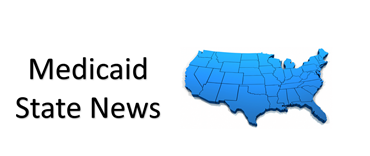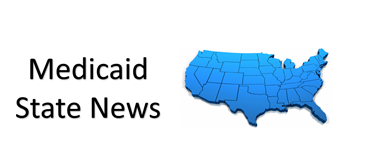This post is only available to members. You register for FREE here or login if you are already a member
Tag: Florida
House proposal would slice Medicaid reimbursements for nursing homes, hospitals
MM Curator summary
Florida lawmakers have proposed a 2% cut to nursing home payments as part of efforts to control Medicaid costs.
The article below has been highlighted and summarized by our research team. It is provided here for member convenience as part of our Curator service.
by: Christine Sexton
News Service of Florida
A top priority of Florida House Speaker Chris Sprowls to extend the length of time that women with newborns can receive Medicaid benefits might be coming at the expense of nursing homes and hospitals.
The House on March 25 rolled out a health care spending proposal that includes deep cuts, including slicing Medicaid reimbursements to nursing homes by 2%, or $80.4 million in state and federal funding.
The proposal, unveiled by House Health Care Appropriations Chairman Bryan Avila, R-Miami Springs, for the upcoming 2021-2022 fiscal year would spend less than what the Senate has proposed.
Florida Health Care Association President Emmett Reed said the proposed Medicaid cuts to nursing homes would translate to about a $125,000 reduction in payments per facility per year.
“With Florida’s growing older population, it’s critical that our nursing centers have the resources they need to recover from the pandemic, strengthen their workforce, upgrade their aging physical structures and continue implementing solutions to ensure seniors have access to high-quality long-term care,” Reed, whose association is the state’s largest nursing-home industry group, said in a statement.
Similar to the Senate proposal, which was released Wednesday, the House health-care plan recommended reducing Medicaid payments for inpatient and outpatient hospital care by $288 million.
Moreover, the House plan proposes eliminating $226 million from what the Safety Net Hospital Alliance of Florida calls the “critical care fund.” The fund is used to offer enhanced Medicaid payments to 28 hospitals that provide the largest amounts of charity care in the state, according to the industry group.
In all, the House proposed spending roughly $42.1 billion across the state’s six health care-related agencies. By contrast the Senate released a $42.3 billion proposal. The proposals are an early step that will ultimately be part of House and Senate leaders negotiating a final budget for the fiscal year that starts July 1.
Florida Hospital Association President and CEO Mary Mayhew, in a statement, called the House’s proposed reductions to hospitals “a gut punch to the doctors, nurses and health care heroes who risked their lives responding to this (COVID-19) crisis. It is simply beyond belief that during a public health emergency, some state lawmakers chose to balance the budget by cutting funding that serves the elderly, disabled and most vulnerable families in our state.”
Mayhew in her statement called on legislative leaders to “use a small portion” of $10 billion in federal COVID-19 relief money that is expected to soon flow to the state “to help Florida hospitals and the patients they serve.”
The proposed health-care budget released Wednesday by Senate Health and Human Services Appropriations Chairman Sen. Aaron Bean, R-Fernandina Beach, also calls for steep reductions to hospitals, though they would be less than what the House is seeking.
The Senate proposal would reduce hospital inpatient and outpatient Medicaid rates by $251.2 million. Also, the Senate would reduce the “critical care fund” by $77.3 million, compared to the House’s proposed $226 million reduction.
Unlike the House, the Senate proposal wouldn’t cut funding for nursing homes.
Among the similarities in the budgets, the House and Senate propose eliminating over-the-counter drug benefits for adults on Medicaid, which would lead to a $22.6 million reduction.
Both chambers also agree the state should increase Medicaid reimbursement rates for institutions that care for people with intellectual and developmental disabilities. But they don’t agree on the amount. The House has proposed increasing the rates by $12.1 million in overall funds, while the Senate has proposed a $36.6 million increase.
Jointly funded by the state and federal governments, Medicaid is a safety net program that provides health coverage to poor, elderly and disabled residents. Enrollment in Florida’s Medicaid program stands at more than 4.5 million people, an increase of more than 730,000 people in the past year since the COVID-19 pandemic hit the state.
While the House budget includes cuts for hospitals and nursing homes, it also includes funding for an initiative by Sprowls, R-Palm Harbor, to allow postpartum women to continue to receive Medicaid benefits for a full year following delivery of babies.
To fund the extension would cost nearly $240 million, the majority of which would come from federal Medicaid matching funds. But to pull down those federal Medicaid dollars, the House proposes investing nearly $93 million in state dollars.
Reducing nursing home reimbursements by 2 percent “saves” about $31.1 million in state dollars, about one-third the amount the House needs to fund the extension for postpartum women.
In announcing his support for the extension, Sprowls said postpartum women and their babies are some of the most vulnerable people in the state.
“No matter where you go in this state, no matter what organization you are or what school or what community center, when you ask people who are our most vulnerable population, the common themes that everyone — without exception — will mention are new moms and their babies,” Sprowls said.
AARP Florida Associate State Director Zayne Smith had not analyzed both chambers’ budgets Thursday. But she told The News Service of Florida that nothing good comes from pitting one group against another.
“All groups (of Medicaid recipients) are vulnerable, quite honestly,” she said. “I don’t think you can pit one group against another. It’s a lose- lose scenario.”
Clipped from: https://www.palmcoastobserver.com/article/house-proposal-would-slice-medicaid-reimbursements-for-nursing-homes-hospitals

Florida not expanding Medicaid but extending postpartum coverage from two to 12 months
MM Curator summary
Florida says no to expansion, but yes to more funds to improve maternal health.
The article below has been highlighted and summarized by our research team. It is provided here for member convenience as part of our Curator service.
Florida state Sen. Annette Taddeo, D-Miami
Steve Cannon / AP
(The Center Square) – Florida’s Republican-led Legislature has no plans – not an inkling – to expand Medicaid to 800,000 low-income residents but under a new proposal, a year of subsidized healthcare could be provided to nearly 100,000 new mothers and their infants.
House Speaker Rep. Chris Sprowls, R-Palm Harbor, announced Tuesday that a yet-to-be-filed bill will propose extending postpartum Medicaid coverage from two months, as currently permitted in Florida, up to 12 months.
“Today, the Florida House is making a meaningful commitment to address the disparities in health outcomes for our children and for their moms,” he said. “We believe that providing the access to postnatal coverage for up to one year after the birth can significantly boost health outcomes for moms and their babies, and we know that healthy moms are better positioned to raise healthy and thriving children.”
Sprowls said the impetus for the bill is House Bill 645 filed by Rep. Kamia Brown, D-Ocee, who flanked the speaker at the Capitol news conference.
“This extension is critical for mothers, going leaps and bounds beyond what is offered in the past,” Brown said, noting of 36 Florida women who died from pregnancy-related complications in 2019, half were Black. “This problem impacts minority communities disproportionately.”
The announcement follows a Biden administration initiative within the $1.9 trillion ‘American Rescue Plan’ adopted by Congress earlier this month to extend Medicaid coverage for a full year to low-income women after they deliver their babies. Under the proposal, it is optional for states to provide extended postpartum Medicaid health coverage.
Florida’s Medicaid program offers coverage to pregnant women who earn up to 196 percent of the federal poverty level, a higher standard than federal law which requires states to cover pregnant women with incomes up to 138 percent of the poverty line.
About 97,600 women would be eligible under the extension, according to the state’s Agency for Health Care Administration (AHCA), which manages Florida’s $30 billion Medicaid program.
“If we’re going to be truly committed to mothers and the health of their children in the long term, it needs to be signaled in both word and deed that this is a long-term commitment, and that’s what we’re going to do,” Sprowls said.
With Missouri and Oklahoma voters in 2020 ordering their Republican-controlled legislatures to expand Medicaid under the Affordable Care Act (ACA) in 2021, Florida remains one of 12 states that have not expanded Medicaid.
Advocacy groups and Democrats, while praising the proposed postpartum coverage extension, said the measure doesn’t go far enough and that now is the time to expand Medicaid.
In a Tuesday Zoom conference, U.S. Health & Human Services Secretary Xavier Becerra joined U.S. Rep. Ted Deutch, D-Boca Raton, and state Sen. Annette Taddeo, D-Miami, in calling for Florida to expand Medicaid under the ACA in which the federal government pays 90 percent of the costs.
A provision in the ‘American Rescue Plan’ provides another 5 percent of funding, meaning the state would only need to cover 5 percent of expansion costs.
“The American Rescue Plan lowers health insurance premiums for millions of American families,” Deutch said. “A family of four making $90,000 could see their monthly premiums come down by $200 a month.”
Taddeo has introduced unheard bills to expand Medicaid under the ACA for several years, including 2021’s SJR 276, assigned four committee hearings – a kiss of death – and unheard before any.
“The time is totally now to do this,” Taddeo said. “We don’t need to have 800,000 Floridians without health care. Deep-red, conservative states such as Idaho, Missouri, Nebraska, Oklahoma and Utah expanded Medicaid. Have any of them said, ‘Oh, we made a mistake. Let’s go back?'”

Medicaid incentive so far not enough to sway holdout states
MM Curator summary
Most non-expansion states say they will not take the increased incentives in the COVID relief bill.
The article below has been highlighted and summarized by our research team. It is provided here for member convenience as part of our Curator service.
South Carolina Gov. Henry McMaster talks about vaccine distribution and abortion during a news conference on Wednesday, Jan. 27, 2021, in Columbia, S.C. Congress just sweetened the incentives for states to extend Medicaid insurance coverage to more low-income adults, but the dozen Republican-controlled states that have spent years resisting expanding the programs have no plans to change course now. “Gov. McMaster isn’t for sale, regardless of whatever ill-conceived ‘incentives’ congressional democrats may come up with,” spokesman Brian Symmes said in a statement. “What the federal spending plan does is attempt to offer a short term solution for a long term problem.” (AP Photo/Jeffrey Collins, file) (Jeffrey Collins)
COLUMBIA, S.C. — (AP) — Democrats’ nearly $2 trillion coronavirus relief package includes a big financial incentive for the states that have opted against expanding Medicaid to provide health coverage for more low-income Americans. It’s proving to be a tough sell.
The Associated Press surveyed top Republican elected officials in the dozen states that have resisted expanding coverage under a key provision of former President Barack Obama’s heath care law. Some have softened their opposition, but the key gatekeepers— governors or legislative leaders — indicated they have no plans to change course.
South Carolina Gov. Henry McMaster remains firmly opposed to the Medicaid expansion.
“Gov. McMaster isn’t for sale, regardless of whatever ill-conceived ‘incentives’ congressional Democrats may come up with,” spokesman Brian Symmes said in a statement. “What the federal spending plan does is attempt to offer a short term solution for a long term problem.”
The federal government already pays 90% of the costs of expanding Medicaid coverage to more low-income adults. Thirty-six states have signed on to the expansion. Two more — Missouri and Oklahoma — are scheduled to begin their expansions in July.
Under the enticement included in the coronavirus relief bill adopted by Congress and signed by President Joe Biden, the federal government would boost its share of costs in the regular Medicaid program, which offers coverage for the poorest Americans. The bump in federal funding would last two years for the states that join the Medicaid expansion.
An analysis by the Kaiser Family Foundation found the additional federal money would cover 150% to 400% of the cost for the holdout states to expand Medicaid, which is jointly funded with federal and state dollars.
In Texas, the incentives would send the state about $5 billion over two years, and the state’s share of expanding coverage would be about $3.1 billion. More than 1.4 million people in the state could become eligible for coverage. For Georgia, the estimate says it would add a net $710 million to state coffers and in Tennessee, $900 million.
“It’s the literal offer you can’t refuse, but let’s see if anyone refuses it, anyway,” said Katherine Hempstead, a senior policy adviser at the nonpartisan Robert Wood Johnson Foundation.
Through interviews and public statements, AP found little change in the 12 states that have held out against the Medicaid expansion: Alabama, Florida, Georgia, Kansas, Mississippi, North Carolina, South Carolina, South Dakota, Tennessee, Texas, Wisconsin and Wyoming.
In Mississippi, one of the nation’s poorest states, advocates say up to 300,000 people — about one-tenth of the state’s population — could become eligible for health coverage if the state adopted the expansion.
Gov. Tate Reeves, a Republican, said he’s not going for it, noting that his stance was a major issue in his 2019 campaign. His GOP primary opponents supported a plan to expand, with the state’s share being paid for by hospitals and a fee of up to $20 a month for people who signed up. He opposed it, even as the Mississippi Hospital Association said it could bring up to 19,000 jobs to the state.
“My position has not changed,” he said last week. “I am opposed to expanding Medicaid in Mississippi. I am opposed to Obamacare expansion.”
In three of the states — Kansas, North Carolina and Wisconsin — the Democratic governor favors expansion but can’t convince a Republican-controlled legislature.
Kansas Gov. Laura Kelley this year called for legalizing medical use of marijuana and using the tax revenue to pay for expanding Medicaid. But the Republicans who control the Legislature blocked hearings on the proposal.
Those lawmakers say they worry the federal government would eventually cut its share of expansion funding.
“It’s not a big enough bribe,” said Richard Hilderbrand, the chair of the state Senate health committee.
Many Republicans remain concerned about the long-term costs of the program and are ideologically opposed to expanding government health care to working-age adults.
“I acknowledge that there are some gaps in coverage that need to be addressed, but I think they can be addressed in ways that do not require us to create a whole new level of entitlement in the state of North Carolina,” North Carolina Senate Leader Phil Berger, a Republican, told The Associated Press.
It’s a similar story in Wisconsin, where the GOP-dominated Legislature and Democratic Gov. Tony Evers are at odds over the expansion. The Democrats’ coronavirus aid package doesn’t change that, Assembly Speaker Robin Vos said earlier this month.
“It’s a nonstarter, and we will continue to oppose the liberal wish list item of Medicaid expansion,” he said.
Hempstead, of the Robert Wood Johnson Foundation, said Medicaid expansion is a way to address one of the biggest shortcomings in the national healthcare landscape: How to get coverage for a group of adults whose incomes put them below the poverty line — $12,880 for a person living alone.
In states that haven’t expanded Medicaid, there are about 2.2 million such people, the Kaiser study found. They usually don’t qualify for traditional Medicaid programs. They also do not make enough to be eligible to buy subsidized private coverage on the health insurance marketplaces established under Obama’s overhaul.
Another 1.8 million people in those states who make slightly more — up to about $17,774 for an individual — qualify for subsidized coverage but often can’t afford it. They also could be covered through an expansion of Medicaid.
Studies have found that adding coverage for these lower-income people reduces charity care in hospitals, allows some people to be healthy enough to work and creates additional health care industry jobs. The financial benefits partially or totally offset the states’ share of the costs over time.
Even in the holdout states, those arguments catch the attention of some Republicans. In Texas, a Republican lawmaker has introduced a longshot bill calling for expansion, though the legislation has no other GOP co-sponsor and there is no indication that Republicans there have lessened their opposition. A similar measure has advanced through a legislative committee in Wyoming, though its prospects appear slim for passing the full Legislature.
In Alabama, Gov. Kay Ivey left open the possibility of expanding Medicaid at some point in the future, but there are no plans to do so.
“The problem has always been how to pay for it,” Ivey spokeswoman Gina Maiola said. “She is open to the discussion, but right now, we simply do not have all the facts.”
___
Mulvihill reported from Cherry Hill, New Jersey. Follow him at http://www.twitter.com/geoffmulvihill and Collins at http://www.twitter.com/JSCollinsAP
___
Associated Press writers Scott Bauer in Madison, Wisconsin; Kimberly Chandler in Montgomery, Alabama; Brendan Farrington in Tallahassee, Florida; Stephen Groves in Sioux Falls, South Dakota; John Hanna in Topeka, Kansas; Gary Robertson in Raleigh, North Carolina; and Emily Wagster Pettus in Jackson, Mississippi, contributed to this report.

Clipped from: https://www.wokv.com/news/medicaid-incentive/WYDNBDNO32IDVMVIU3CIIQDF2E/
Florida unlikely to expand Medicaid for 800,000 residents, despite offer of more federal money
MM Curator summary
Florida is not being swayed by the new expansion funding being offered.
The article below has been highlighted and summarized by our research team. It is provided here for member convenience as part of our Curator service.
TALLAHASSEE — Gov. Ron DeSantis and Florida legislative leaders still aren’t interested in expanding Medicaid under the Affordable Care Act, despite the federal government’s offer to defray the cost to the state for two years as part of the $1.9 trillion COVID-19 relief package signed by President Biden last week.
Democrats and advocates who’ve pushed for expansion say there’s no excuse not to offer coverage to 800,000 more Floridians now that the cost to the state would be less.
Sen. Annette Taddeo, D-Miami, for example, noted that DeSantis doesn’t plan on giving back to the federal government any of the $10 billion in direct aid Florida is getting, as U.S. Sen. Rick Scott requested, so traditional GOP arguments in favor of fiscal restraint seem to have evaporated in Tallahassee, she said.
“Even Gov. DeSantis said to former governor and senator Rick Scott, ‘that’s crazy to turn back money,'” Taddeo said Wednesday. “Well, I feel exactly the same way — that’s crazy to turn back money for Medicaid expansion in the middle of a global pandemic, to say to people, ‘you still can’t have insurance.'”
Medicaid expansion would provide coverage under the program, which is run jointly by the state and federal government and covers poor families, children and pregnant women, to people who earn up to 138% of the federal poverty line, which stands at $18,000 per year for a person and $37,000 for a family of four.
The federal government would cover the entire cost of expansion at first before their share reduces to 90%, with the state paying the remaining 10%. The usual cost share of the current Medicaid program varies by year but can reach as high as 60% paid by the federal government and 40% paid by Florida.
Under the relief package, for two years the federal government would pay an extra 5% of its share of the main Medicaid program, which is expected to serve nearly 4.6 million Floridians next fiscal year before enrollment drops in future years due to a rebounding economy.
Florida’s Medicaid program is projected to cost $31.6 billion this year, or about one-third of the state’s $92.2 billion budget. State economists estimate the state’s share this year to be $11 billion and it is expected to rise to $13 billion next year.
Florida Policy Institute, a liberal think tank based in Orlando, estimates expanding Medicaid now would save the state $3.5 billion.
That would free up money for other things, such as education and the environment, and advocates argue the savings would be even greater, because the cost of uncompensated care at hospitals would go down, eventually reducing health care premiums across the entire system.
“There is no excuse fiscally for any lawmaker to say it would be fiscally undoable,” said Holly Bullard, FPI chief strategy and development officer. “The fiscal argument isn’t there, it’s really reversed.”
But GOP leaders still have an eye on the 10% cost to the state in future years.
“The president has concerns about the long-term, recurring costs associated with Medicaid expansion,” Katie Betta, spokeswoman for Senate President Wilton Simpson, R-Trilby, stated in an email explaining his opposition.
DeSantis office didn’t return a request for comment Wednesday, but his spokeswoman told the Washington Post this week he “remains opposed to the expansion of Medicaid in Florida.”
House Speaker Chris Sprowls, R-Palm Harbor, is more concerned about allowing more residents coverage, an echo of the criticism from past GOP House leaders that “able-bodied adults” would be eligible for Medicaid under expansion.
“The Speaker will not pursue a Medicaid expansion,” Sprowls spokeswoman Jenna Sarkissian stated in an email. “He believes Medicaid should be reserved for our most vulnerable residents, such as low-income senior citizens, people with disabilities, children and pregnant women.”
Sarkissian added that Sprowls “has expressed a strong desire to address disparities in maternal health care for low-income women and invest in areas like career and higher education help to generate better outcomes for Floridians and put them on a path to employment, financial resilience and prosperity.”
After years of intense debate over Medicaid expansion, the fight over the issue in the Legislature has cooled.
In 2013, Florida House Democrats demanded all bills be read in full, slowing down the chamber to protest the lack of action on the issue, but a Senate plan to allow newly eligible enrollees to receive private health plans paid by the federal government was rebuffed by House Republicans.
At the time, then-Gov. Rick Scott had come out in favor of expansion, as long as the federal government was covering the costs. After he was reelected in 2014, he reversed course and didn’t speak in favor of a plan pushed by Senate Republicans in 2015 to expand Medicaid while imposing work requirements and attaching other strings. House Republicans again rejected the plan, but only after a standoff between the chambers that delayed the budget.
Faced with the stalemate in the Legislature, those in favor of expansion have turned to a potential ballot measure that would put the issue before voters. Those efforts, however, have been stymied so far, too.
The Florida Decides Healthcare political committee halted its petition gathering push in 2019, saying it would be unable to gather enough petitions in time to be placed on the 2020 ballot. The group will try again for the 2022 ballot, but the Legislature last year passed a law placing greater requirements on petition gatherers and increased the amount of petitions needed for a Florida Supreme Court review.
Taddeo wants the Legislature to eliminate the need for that process by putting the measure on the ballot itself. She’s filed SJR 276 to put Medicaid expansion on the 2020 ballot, but that avenue is unlikely, too, because it requires 60% support in both chambers.
“After this icing on the cake is handed to us from the federal government … and we still don’t do it – it’s so sad because we’re playing with people’s lives,” Taddeo said.
Clipped from: https://www.orlandosentinel.com/politics/os-ne-florida-medicaid-expansion-20210317-uxyqvh3trjgvthw4qxoba52syy-story.html

Feds woo Georgia, other Medicaid expansion holdouts with billions
MM Curator summary
Biden dangles $20B+ in front of non-expansion states.
The article below has been highlighted and summarized by our research team. It is provided here for member convenience as part of our Curator service.
In October, Georgia Gov. Brian Kemp signed an agreement with the Trump administration to create a $218 million-per year plan that limits the new Medicaid coverage pool to about 50,000 uninsured Georgia adults. The Biden administration aims to sweeten Georgia’s reason to expand Medicaid to more than 350,000 other low-income Georgians. Ross Williams/Georgia Recorder
WASHINGTON—U.S. House Democrats are trying again to entice Georgia and other holdout states to expand Medicaid coverage with the prospect of billions of dollars in federal cash.
The new offer, included in a massive $1.9 trillion COVID-19 relief package that House Democrats are pushing through committees this week, could help provide health coverage to more than 2 million Americans – more than 400,000 in Georgia. They are falling between the cracks in government programs in the midst of the pandemic and economic downturn.
Most are childless adults who earn some money but still fall below the federal poverty income level, or about $12,880 per year.
In the vast majority of states, people in that situation could qualify for Medicaid, a public program that provides health insurance to low-income people and people with disabilities.
But in Georgia and 13 other states that have not yet expanded Medicaid, they are still ineligible for that program. Meanwhile, they are still too poor to get subsidized private coverage through insurance exchanges.
Edwin Park, a research professor with the Center for Children and Families at Georgetown University, said the House proposal could “move the dial” in some states.
“For others, unfortunately, I think they may walk away from this very good deal,” he said.
Holdout states in addition to Georgia include Florida, North Carolina, Kansas, Tennessee and Wisconsin.
Georgia’s GOP leaders have resisted fully expanding Medicaid’s income eligibility to include people who make 138% of the poverty rate since the state became eligible to do that eight years ago under the Affordable Care Act.
In October, Georgia Gov. Brian Kemp signed an agreement with the Trump administration to create a $218 million-per year plan that aims to expand Medicaid coverage to about 50,000 uninsured Georgia adults who could be covered – if they satisfy a work or activity requirement of 80 hours a month. It is set to begin in July with the final piece taking effect in January 2023.
The U.S. Supreme Court announced in December that it would hear a case to determine whether Georgia and other states can impose work requirements on Medicaid recipients.
Kemp said at the October signing that expanding Medicaid outright would be too expensive, costing the state $550 million a year.
If Georgia fully expanded Medicaid with the federal government absorbing 95% of the tab, the state could cover an additional 350,000 uninsured people, said Laura Colbert, executive director of Georgians for a Healthy future. She said an estimate by the governor’s own Office of Planning and Budget a couple of years ago calculated that once savings from programs or services that would instead be covered by Medicaid are factored in, the cost of full expansion is effectively a wash with Kemp’s Patients First program.
“It’s heartbreaking, frankly, to see our state continue to pass up what we think is the most cost-effective, moral and common sense investment in our people and in our health care system,” Colbert said. “And that heartbreak grows when it’s in the midst of a pandemic.”
Supreme Court ruling
The gap that many low-income people fall into was created when the U.S. Supreme Court struck down part of the health care law, also known as Obamacare. The court said Congress could not make states expand their Medicaid programs.
But states have gradually signed on over the last decade, because Congress provided them such big financial incentives to do so. At first, the federal government picked up the entire cost of adding childless adults and others to the Medicaid rolls. These days, it still covers 90 percent of the cost. The federal government last covered 95% in 2017.
Throughout much of the South, along with places like Kansas, South Dakota, Wyoming and Wisconsin, though, state officials have resisted calls to expand their Medicaid programs. Republicans in particular have balked at what they see as an overreach by the federal government.
The latest measure, though, would add a new twist. It would give holdout states more money for the patients they are already covering if they agree to expand Medicaid.
“Even though states still pay 10 percent [for the new patients], they would still come out ahead,” said Robin Rudowitz, the co-director of the Kaiser Family Foundation’s Program on Medicaid and the Uninsured. “I think that changes the math.”
An analysis by the left-leaning Center on Budget and Policy Priorities shows that states would gain substantially under the Democratic proposal:
- Florida could receive $3.5 billion.
- North Carolina would be in line for $2.4 billion.
- Georgia could bring in $1.9 billion.
- Tennessee could collect $1.7 billion.
- Wisconsin could gain $1.3 billion.
- Missouri could receive $1.7 billion.
- Kansas could bring in $330 million.
Texas stands to gain the most, with a potential of bringing in nearly $6 billion. The extra money would end after two years.
How Medicaid works
Medicaid is run jointly by states and the federal government. The federal government reimburses states a set amount of the money they spend on the program, and that rate varies by state.
States whose residents have lower average incomes get higher reimbursement rates. In March, Congress increased the reimbursement rate for all states for as long as the COVID-19 emergency remains. The Biden administration has said it will extend that emergency until at least the end of 2021.
The House proposal would further increase the reimbursement rates for new expansion states by 5 percentage points.
The new incentives would be part of a larger congressional effort to address the fallout of the COVID-19 pandemic. Democrats’ relief bill covers everything from distributing vaccines to supporting transportation networks to doling out stimulus checks.
That health emergency has also changed how state officials view an expansion of health insurance eligibility, Rudowitz said.
“The pandemic has certainly highlighted the issues around the need for health coverage, and you have more people [in states that haven’t expanded Medicaid] becoming uninsured as related to the economy,” Rudowitz said.
Even before the pandemic, Georgia’s uninsured rate consistently ranked among the highest in the country.
States may resist
Park said that the federal government picks up the costs of the expansion, and people who get health coverage demand fewer state services.
“The fiscal impact of [Medicaid] expansion has always been positive… But some states may resist for ideological reasons rather than looking at the numbers.”
The House Energy and Commerce Committee is set to hold a hearing on the proposed changes Thursday morning.
Among the other changes that the lawmakers are considering are measures to ensure that women retain their Medicaid coverage for up to a year after giving birth; fully covering the cost of COVID-19 vaccines under Medicaid; and allowing prison inmates to qualify for Medicaid 30 days before they are released.
Georgia Recorder Editor John McCosh contributed to this report.
Clipped from: https://georgiarecorder.com/2021/02/11/feds-woo-georgia-other-medicaid-expansion-holdouts-with-billions/

18 states back Arkansas on Medicaid work rule
MM Curator summary
More than 1/3rd of states have registered their support of their right to use work requirements to further the objectives of the Medicaid program as SCOTUS considers the case.
The article below has been highlighted and summarized by our research team. It is provided here for member convenience as part of our Curator service.
WASHINGTON — Arkansas should be able to set work requirements for some of its Medicaid recipients, 18 states told the U.S. Supreme Court this week.
The granting of federal waivers, which allowed these “demonstration projects” to proceed, was not “arbitrary and capricious,” they said.
Seventeen states signed an amicus curiae — or friend of the court — brief arguing that a lower court’s ruling is “flatly inconsistent with historical and current practice” and could lead to “potentially disastrous consequences.”
The Supreme Court announced in December that it would hear appeals involving the Arkansas and New Hampshire work requirements; both had been struck down by lower courts.
Arkansas hopes to persuade the court to allow it to use the work requirement for the Arkansas Works program, which uses Medicaid dollars to buy private insurance for low-income people.
The 17 states, all of which have Republican attorneys general, are: Alabama, Alaska, Arizona, Florida, Georgia, Indiana, Kansas, Louisiana, Mississippi, Missouri, Montana, Ohio, Oklahoma, South Carolina, Texas, Utah and West Virginia.
An 18th state, Nebraska, filed a separate brief arguing that the lower courts’ rulings were flawed; its attorney general is Republican as well.
With then-President Donald Trump in the White House, the U.S. Department of Justice defended the waivers.
Now that President Joe Biden is in office, the department’s stance is unclear.
A department spokesman Wednesday declined to comment on the litigation.
Under federal law, the secretary of the Health and Human Services Department is authorized to approve “any experimental, pilot, or demonstration project which, in the judgment of the Secretary, is likely to assist in promoting the objectives” of Medicaid and other state-run programs.
In legal filings, Arkansas has argued that the Arkansas demonstration project’s aim was “to test the hypothesis that conditioning Medicaid expansion benefits on work, education, or volunteering would lead to healthier outcomes for its beneficiaries.”
Critics argued that Arkansas Works was not designed to promote the objectives of the Medicaid program, and they portrayed the works requirement as punitive.
The requirement, which applied to Arkansans ages 19-49 covered under Arkansas Works, resulted in more than 18,000 people losing their health coverage over a nine-month period.
In many instances, the recipients met the requirements to receive the assistance but had failed to properly fill out the documentation.
At least 10 states have adopted Medicaid work requirements, according to the Kaiser Family Foundation.
The work requirements vary from state to state. In Arkansas, a recipient could meet the requirement — unless he was exempt — by working or doing other approved activities, such as volunteering and going to school.
Under the leadership of then-Gov. Mike Beebe, a Democrat, Arkansas expanded its Medicaid program under the 2010 Patient Protection and Affordable Care Act to cover adults with incomes of up to 138% of the poverty level.
After his election in 2014, Gov. Asa Hutchinson, a Republican, urged the Legislature to keep the program in place, later adding work or job-training requirements.
The tighter requirements helped persuade the Republican-dominated state Legislature to continue the program.
The administration of President Barack Obama declined to grant the waivers. The changes were subsequently approved by the Trump administration in March 2018 pursuant to Section 1115 of the Social Security Act, which authorizes waivers from federal Medicaid law.
After Arkansas Medicaid recipients sued, an Obama judicial appointee, U.S. District Judge James Boasberg of Washington, D.C., struck down the restrictions.
In a March 27, 2019, ruling, Boasberg found that federal Health and Human Services Secretary Alex Azar exceeded his authority in approving the requirements by failing to consider how they would affect the Medicaid program’s goal of providing health coverage to needy people.
On Feb. 14, the U.S. Court of Appeals for the District of Columbia Circuit said federal approval of the plan had been “arbitrary and capricious.”
In a unanimous three-judge appellate ruling, written by Senior U.S. Circuit Judge David Sentelle, the court found that in approving the project without considering its effect on Medicaid coverage, the Department of Health and Human Services violated the Administrative Procedures Act.
Sentelle, appointed by President Ronald Reagan, was joined by Judges Harry Edwards, appointed by President Jimmy Carter, and Cornelia Pillard, appointed by Obama.
Arkansas subsequently appealed to the U.S. Supreme Court.
In July, Arkansas Attorney General Leslie Rutledge maintained that the requirements would give able-bodied Arkansans an incentive to enter the workforce, helping them establish “a stronger, more resilient connection with their communities.”
One of the attorneys representing the Arkansas Medicaid recipients, Legal Aid of Arkansas’ Kevin De Liban, had referred to the workforce requirements as “termination traps.”
The Biden administration hasn’t said whether it will defend the waivers or rescind them.
Asked Tuesday about the dispute over work requirements, White House press secretary Jen Psaki referred questions about the ongoing litigation to the Department of Justice.
“I will say that President Biden does not believe, as a principle, it should be difficult for people to gain access to health care,” she said. “He’s not been supportive in the past, and is not today, of putting additional restrictions in place. And he’s spoken about that publicly, too.”
A spokeswoman for Rutledge said Wednesday that the work on the appeal continues.
“The Attorney General’s office looks forward to defending Arkansas Works at the U.S. Supreme Court so Arkansas may enrich the lives of our fellow Arkansans through commonsense community-engagement requirements.”
Officials with the National Health Law Program, which is helping to challenge the waivers, could not be reached for comment Wednesday.
Arkansas lawmakers will consider changing the state’s version of Medicaid expansion, with the state planning to seek a new waiver from the federal government for the program because the current waiver expires at the end of this year. The program provides health care coverage for about 300,000 low-income Arkansans.
The Legislature also will consider the spending authority for the program for the next fiscal year, which requires a third-fourths vote in the House and Senate. That requires 27 votes in the 35-member state Senate and 75 votes in the 100-member House of Representatives.
“Regardless of what the Supreme Court says on the work requirement, and whether it is authorized or not, we have to get our waiver by the Biden administration, so we want to shape this in a way that we can get the waiver,” Hutchinson said.
The community engagement requirements continue to have the support of the governor.
“We believe that we want to move people from dependence into independence and a part of that is making sure they are adequately trained for work,” Hutchinson said.
Information for this article was contributed by Andy Davis of the Arkansas Democrat-Gazette.
Clipped from: https://www.arkansasonline.com/news/2021/jan/28/18-states-back-arkansas-on-medicaid-work-rule/

Florida Medicaid website hacked for 7 years, hundreds of thousands affected
MM Curator summary
The website that hosts the application for multiple Florida Medicaid programs had a data vulnerability for 7 years that exposed personal identity and financial information.
The article below has been highlighted and summarized by our research team. It is provided here for member convenience as part of our Curator service.
Tallahassee-based children Medicaid health plan Florida Healthy Kids Corp. began notifying members Jan. 27 of a 7-year data breach that exposed the personal information of hundreds of thousands of health plan applicants.
The health plan was notified Dec. 9 of the security breach and launched an investigation, which found there had been “significant vulnerabilities” since 2013 on its website and databases that support the online children health insurance application. The vulnerabilities lasted from November 2013 to December 2020, when the health plan temporarily shut down its website.
The health plan said it discovered that several thousand applicants’ information was inappropriately accessed and tampered with as a result of the breach. Information of applicants and enrollees that was exposed included Social Security numbers, dates of birth, names, addresses and financial information.
During the time of the breach, Jelly Bean Communications Design was maintaining the health plan’s website and databases. The health plan said it is speeding efforts to move the website to a new vendor. The health plan incorporates four programs that offer health insurance for children from birth to age 18: Medicaid, MediKids, Florida Healthy Kids and the Children’s Medical Services program, according to local CBS affiliate WPEC.
The health plan said it has not confirmed that personal information was removed from the system as a result of the incident and recommended that individuals who applied for or enrolled with the health plan between November 2013 and December 2020 set up fraud alerts or security freezes.

Feds boost Florida’s Medicaid coffers by extending COVID-19 public health emergency
MM Curator summary
The public health emergency was extended to April, sending $130M more to FL alone.
The article below has been highlighted and summarized by our research team. It is provided here for member convenience as part of our Curator service.
TALLAHASSEE — Florida lawmakers have gotten a well-timed budget break thanks to a decision by the federal government to extend the nation’s public-health emergency due to the COVID-19 pandemic.
U.S. Health and Human Services Secretary Alex Azar extended the public-health emergency last week.
Azar’s decision means the federal government will continue to allocate a 6.2 percentage-point increase in money for Medicaid, the joint federal-state health care program. Before the extension, the additional funding was slated to expire in March.
Justin Senior, chief executive officer of the Safety Net Hospital Alliance of Florida, estimated that each month the extension is in effect frees up about $130 million in state money that would otherwise be needed to fund Medicaid. Senior’s association represents 14 of the state’s public, teaching and children’s hospitals.
“That’s a huge boost to the budget, both this year and potentially next year, that can help lawmakers avoid cutting health care in the middle of a pandemic,” said Senior, a former secretary of the state Agency for Health Care Administration, which runs much of the Medicaid program.
The good budget news came as lawmakers return to Tallahassee this week for the first round of committee meetings before the March 2 start of the 2021 legislative session. With the pandemic reducing state tax revenues, finding a way to balance the budget will be a major issue during the session.
Recognizing the national economic problems caused by the pandemic, Congress initially agreed in March to boost the federal Medicaid match for all states by 6.2 percentage points.
The decision by Azar to extend the emergency means that Florida should continue to receive the increased federal funding through the June 30 end of the state’s 2020-2021 fiscal year.
Medicaid provides health coverage to poor, elderly and disabled people. Enrollment in the program is countercyclical, increasing in tough economic times when there is reduced state tax revenue to help pay for it. When the economy is thriving and money to fund the program is available, enrollment decreases.
Before the COVID-19 pandemic, enrollment in Florida’s Medicaid program had usually been below 3.9 million people. As of Nov. 30, 4.475 million Floridians were enrolled in the program, a nearly 19 percent increase from the 3.76 million who were enrolled in March 2020, prior to the economic shutdown associated with the pandemic.
While enrollment in Medicaid programs is increasing nationwide, Florida, which did not expand Medicaid eligibility under the federal Affordable Care Act, has seen some of the largest increases, according to Tom Wallace, the state Agency for Health Care Administration’s assistant deputy secretary for Medicaid finance analytics.
The Medicaid program does not cover all low-income Floridians and has different eligibility criteria based on age, income and assets and medical conditions. But increases have been seen in nearly every eligibility category, from children to poor seniors, according to Amy Baker, coordinator of the Legislature’s Office of Economic & Demographic Research.
While the federal extension means additional funds for the state, it also means additional restrictions. During the pandemic, state Medicaid officials cannot alter the program to make enrollment more restrictive than what it was prior to January 2020.
Additionally, so long as the public health emergency continues, the state is largely precluded from disenrolling anyone who was enrolled in Medicaid on March 18 or who enrolled due to the pandemic, with some limited exceptions. For instance, states can disenroll people who have been incarcerated or people who were presumed to be eligible for Medicaid but were ultimately determined ineligible.
Clipped from: https://thecapitolist.com/feds-boost-floridas-medicaid-coffers-by-extending-covid-19-public-health-emergency/

